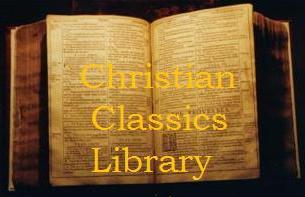At the campus ministry I serve, one of our small groups is reading
Blue Like Jazz by Donald Miller. I suppose this may be a trendy thing to do. Hmmm...
In any case, I ran across this quote in chapter 10 that seems to get at some of my questions about the way United Methodist churches are trying to market themselves (as in the RETHINK campaign for example), or the hasty dash I see some churches making to throw off our distinctive traditions in order to become just like non-denominational churches for the sake or reaching new people - what is the underlying reasoning behind what we are doing? Have we thought about it
theologically?
Miller writes:
"A friend of mine, a young pastor who recently started a church, talks to me from time to time about the new face of church in America - about the postmodern church. He says the new church will be different from the old one, that we will be relevant to culture and human struggle. I don't think any church has ever been relevant to culture, to human struggle, unless it believed in Jesus and the power of his gospel. If the supposed new church believes in trendy music and cool webpages, then it is not relevant to culture either. It is just another tool of Satan to get people to be passionate about nothing."I've got no problem with good music or cool webpages, nor with churches trying to do new things. What concerns me is an attitude that if we can just make church "cool" for those outside (and usually we let the insiders decide what that means), if we can just put the right packaging on it, then we will accomplish our mission (which appears to be attendance growth).
"Give the people what they want."
But at that point have we not bought into consumerism and reduced our faith to a spiritual commodity to be marketed? The truth is our message is something un-cool: Come die with us. Come bear a cross with us. Come learn what it means to be a spiritual sacrifice, acceptable and pleasing unto God. Come suffer through mediocre sermons and un-trendy music. Come put up with the broken best efforts of other Christians who are all struggling together to live in God's grace and to be his church. Come learn how to live in a community where we love not because when we first showed up everything was as hip and cool as a television commercial (it certainly wasn't), but rather because we have imbibed deeply of the love of God through some crazy old book and weird rituals with bread and water and wine that are thousands of years out-of-fashion.
This is, I suppose, the reason for my sort of admiration for the Greek Orthodox: they carry on as if it is still the year AD 787 and they don't really care what I think of it. Good for them, I like that.
God willing, I will never become one of those perpetual, cynical, complainers about the church (we have plenty of this and it is often unhealthy). We have been given an awesome, hopeful, joy-filled, ancient faith. We are offered a sharing in the very life of the Triune God (which hasn't made it into our RETHINK commercials yet, as far as I can tell). We have been grafted into the body of Christ - the Church of the living God, the pillar and foundation of the Truth. I love the Church. We should just be who we really are - with conviction (this brings up that whole denominational identity thing) - rather than trying to figure out what "they" want us to be. Will the attendance grow if we do that? I have no idea. Probably it will in some places and not in other. But ultimately all shall be well. All manner of thing shall be well.
Happy "All Souls Day"!
Labels: Christ and Culture, Methodism
 This article at the Christian post tells about how church planter and Anglican bishop Todd Hunter is discovering that the liturgy itself, far from "turning people off" can - at least in some cases - be a tool for evangelism:
This article at the Christian post tells about how church planter and Anglican bishop Todd Hunter is discovering that the liturgy itself, far from "turning people off" can - at least in some cases - be a tool for evangelism:








